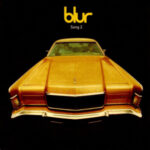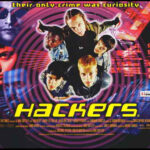The 1990s was a vibrant decade for alternative music, with the emergence of various bands that left an indelible mark on the musical landscape. One such group that captured the essence of the era was The New Radicals. Led by the enigmatic Gregg Alexander, the band burst onto the scene in 1998 with their infectious single “You Get What You Give,” a song that not only became a chart-topping hit but also encapsulated the rebellious spirit of the late ’90s alternative pop movement. This article delves into the short-lived but impactful journey of The New Radicals, exploring their music, the factors that contributed to their brief existence, and their lasting legacy.
The Birth of The New Radicals:Formed in Los Angeles in 1997, The New Radicals were the brainchild of singer-songwriter Gregg Alexander. Alexander, a seasoned musician and songwriter, had previously tasted success in the late ’80s with his band New Bohemians but found himself seeking a new direction in the late ’90s. Channeling the eclectic sounds of the era, Alexander assembled a group of talented musicians to form The New Radicals.
The lineup featured Gregg Alexander (vocals, guitar), Danielle Brisebois (keyboards), Stuart Zender (bass), and Brian MacLeod (drums). Together, they created a musical concoction that blended elements of pop, rock, and alternative, resulting in a sound that was fresh, catchy, and distinctively ’90s.
The Hit Single: “You Get What You Give”:
The pinnacle of The New Radicals’ career came with the release of their debut and only studio album, “Maybe You’ve Been Brainwashed Too,” in 1998. The standout track from the album was the anthemic “You Get What You Give.” The song’s energetic blend of catchy hooks, socially conscious lyrics, and Alexander’s charismatic vocals made it an instant hit.
“You Get What You Give” served as an anthem for a generation disillusioned with societal expectations and yearning for authenticity. The lyrics touched on themes of individualism, consumer culture, and the pursuit of dreams, striking a chord with listeners. The catchy chorus, infectious melody, and Alexander’s impassioned delivery propelled the song to the top of the charts, reaching No. 36 on the Billboard Hot 100.
The accompanying music video, directed by Evan Bernard, further emphasized the rebellious and anti-establishment sentiment of the song. It featured Alexander leading a group of young people through the streets of New York, crashing a high-profile celebrity award ceremony, and symbolically rejecting the materialistic values of the era.
The Controversy and Disbandment:Despite the success of “You Get What You Give,” The New Radicals’ journey was marked by controversy and a relatively short lifespan. After the release of their debut album, Alexander made a surprising announcement. In July 1999, he declared that The New Radicals would disband, and he would retire from the music industry. The decision left fans and the industry puzzled, especially given the band’s burgeoning success.
Rumors circulated that Alexander was disenchanted with the music industry’s commercialism and felt restricted by the expectations placed on him. He expressed a desire to focus on songwriting and production rather than being in the spotlight. Additionally, the relentless scrutiny and criticism from the media contributed to his decision to step away from the band and public life.
The abrupt disbandment added an air of mystery to The New Radicals’ legacy. The decision to retire after the release of their debut album and the success of their hit single left fans wondering what could have been and added an element of myth to the band’s story.
The Legacy of The New Radicals:
Despite their brief existence, The New Radicals left an indelible mark on the alternative pop scene of the late ’90s. “Maybe You’ve Been Brainwashed Too” remains a snapshot of the era, encapsulating the sound, style, and ethos of the time. The album featured a mix of upbeat, infectious tracks like “Someday We’ll Know” and introspective, soul-searching ballads like “Jehovah Made This Whole Joint for You.”
The impact of “You Get What You Give” extends beyond its chart success. The song has become a cultural touchstone, frequently used in films, commercials, and television shows. Its anthemic quality and enduring relevance to the disillusionment of youth continue to resonate with new generations.
Gregg Alexander’s decision to step away from the spotlight did not mark the end of his musical career. While The New Radicals disbanded, Alexander continued his work as a songwriter and producer, contributing to the success of other artists. Notably, he co-wrote and produced several tracks for the critically acclaimed album “Stripped” by Christina Aguilera.
In 2021, two decades after disbanding, The New Radicals made a surprise return to the public eye. Inauguration Day saw the band’s first public appearance since 1999, as they performed “You Get What You Give” during the virtual “Parade Across America” event celebrating the inauguration of President Joe Biden. This unexpected reunion generated renewed interest in the band and their iconic hit.
The New Radicals’ journey may have been short-lived, but their impact on ’90s alternative pop culture is undeniable. “Maybe You’ve Been Brainwashed Too” and “You Get What You Give” remain enduring symbols of the era, capturing the spirit of rebellion, individualism, and disillusionment that defined the late ’90s.
Gregg Alexander’s decision to disband The New Radicals and step away from the music industry may have left fans yearning for more, but the band’s legacy endures. The enigmatic frontman and his team created a sound that, while firmly rooted in the ’90s, continues to resonate with those who appreciate the rebellious and eclectic spirit of alternative pop music. As “You Get What You Give” continues to find new audiences and the band enjoys a resurgence in popularity, The New Radicals’ place in the pantheon of ’90s alternative remains secure—a brief but brilliant flash that refuses to be forgotten.This post has already been read 213 times!










